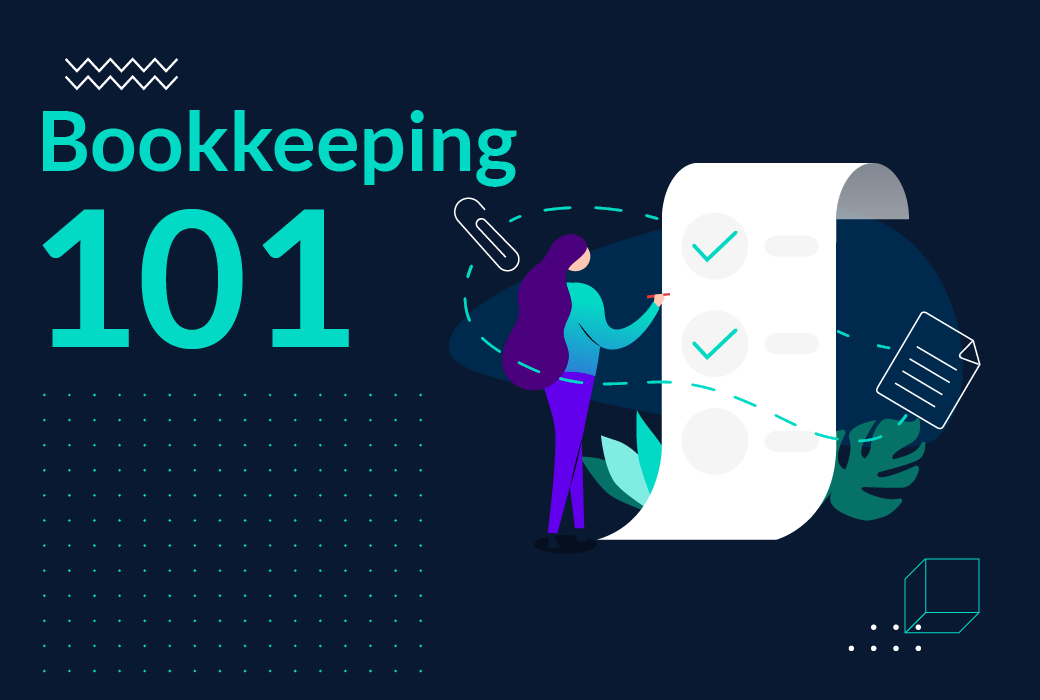
Recording financial transactions require skills, consistency, and time to generate useful reports such as income statements, revenue, and spending analysis. However, many startups and small business owners overlook the benefits of bookkeeping.
This blog is your ultimate guide on bookkeeping that explains its basics, methods, importance, and steps to record the entries.
Bookkeeping Basics
Bookkeeping, in simple terms, is the recording of the day-to-day business transactions as per the applicable accounting standards. It is a part of the accounting process that helps small businesses and startups streamline their financial transactions.
Small businesses these days use accounting software that are available easily in the market. You can automate the recording of your financial transactions smartly with these softwares. However, the bookkeeping is done in one of the two ways mentioned below:
Choose a Method of Bookkeeping
Cash-based and accrual-based bookkeeping are the two methods you can choose for your startup.
Cash-based Bookkeeping
Under this method, the entries are recorded only when the money is received or paid. For example, if you paid an advance rent for March in February, you will record the rent paid for two months in February.
Similarly, if you have not received your sales income for December and receive the four months’ sales income in March, then you will record sales income in March for four months (December, January, February, and March).
Accrual-based Bookkeeping
Under this method, the financial transactions are recorded when they occur, even if no money is paid or received. In the above example of rent paid in advance for March in February, the accrual-based method considers recording rent expense when it is incurred.
It means you cannot record rent expenses in February for March; hence, you will have to pass a journal entry of rent paid in advance in February and book a rent expense for March only.
Similarly, the sales income received in March for the four months must have accrued in all those months; hence, under the accrual-based method, you will record sales income in all four months by debiting the account receivable.
Tip: Use the accrual method of accounting. It is preferred by the Generally Accepted Accounting Principles (GAAP) because it records revenue and expenses when they occur.
Explore more: Financial Management & Bookkeeping App For Startups.
How to Record Accounting Entries?
– Identify the transaction as to sales, purchase, receipt, payment, etc., before passing an entry. This is the most important step, where you must identify the type of entry. It helps you to identify which accounts will be affected in a particular transaction.
– Once you have identified the transaction, determine which accounts will be affected by a particular transaction. For example, you will need a salary expense account and a cash account or bank account for a salary payment transaction.
– Create ledger accounts for each transaction, such as purchase, cash, depreciation, etc. Once you identify which accounts will be affected, you will have to create those accounts in your ledger.
– Identify which account/s will be debited or credited. In this step, you will have to categorize the transactions as to which accounts needs a debit entry and which accounts need a credit entry.
– Pass an entry. Once all of the above is done, you are good to go with an entry. To record an entry, you will debit the accounts that need a debit entry and credit the accounts that need a credit entry. It will make both the debit and credit sides equal.

Choose Your Type of Bookkeeping
You will have to decide between two types of bookkeeping methods: single-entry bookkeeping or double-entry accounting.
Single-entry Accounting
This method uses only one entry as a negative or positive amount depending on the outflow or inflow of money. It is widely used by very small businesses when they have fewer activities.
You can use single-entry bookkeeping when you are new to recording the entries in the general ledger and want to keep track of your financial transactions. You can record transactions as either income or expense.
For example, if you incurred a printing and stationary expense of AED 450, then you will record it as an expense of AED 450, and you do not need to record its cash or bank entry.
Double-entry Accounting
The double-entry bookkeeping method considers two columns for each transaction debit and credit. In other words, this method considers two effects for each transaction. Most businesses and companies use this method.
You should use this method when you have many financial transactions to record. In this method, you have always recorded transactions with two columns. Every transaction will have debit and credit sides affected.
For example, if you bought material worth AED 5,000 from a vendor, you will debit the material purchased account and credit the accounts payable (vendor) account. Thus, for every expense or income, you will have two sides affected: debit and credit.
Why is Bookkeeping Important for Startups & Small Businesses?
Big companies have accountants and online software that help them streamline their books of accounts. At the same time, startups and small businesses may not have started maintaining their books of accounts.
The points below explain how bookkeeping enables you to achieve your business goals:
– Bookkeeping helps you separate your business expenses and personal finances. You can even identify how much money you spend on a particular activity in a month. You can also set controlling measures if it exceeds your budgeted goal.
– Accounting simplifies your business spending and expenses by segregating them under separate ledgers. For example, you can group expenses related to office cleaning, tea and coffee, and snacks under office expenses.
– It allows you to organize documents and records. Bookkeeping provides preliminary information for financial statements such as cash flow statements, ratio analysis, and many other important financial reports for your business balance sheets.
– It helps you streamline your taxes, loan repayments, and investments since you have records for all of them in your accounts.
– Bookkeeping makes it easy for you to track your receivables and payables.
How to manage bookkeeping for your startup or your small business?
- Hire In-house Bookkeeper: You can employ a qualified accountant. He can use his skills to record the financial transactions for your business.
- Manage yourself: You may also decide to manage your accounts all by yourself. It helps initially when you have just started off your business.
- Use online bookkeeping service: You can also use various online bookkeeping services to automate your accounting entries. They can also generate invoices and other important financial reports.













